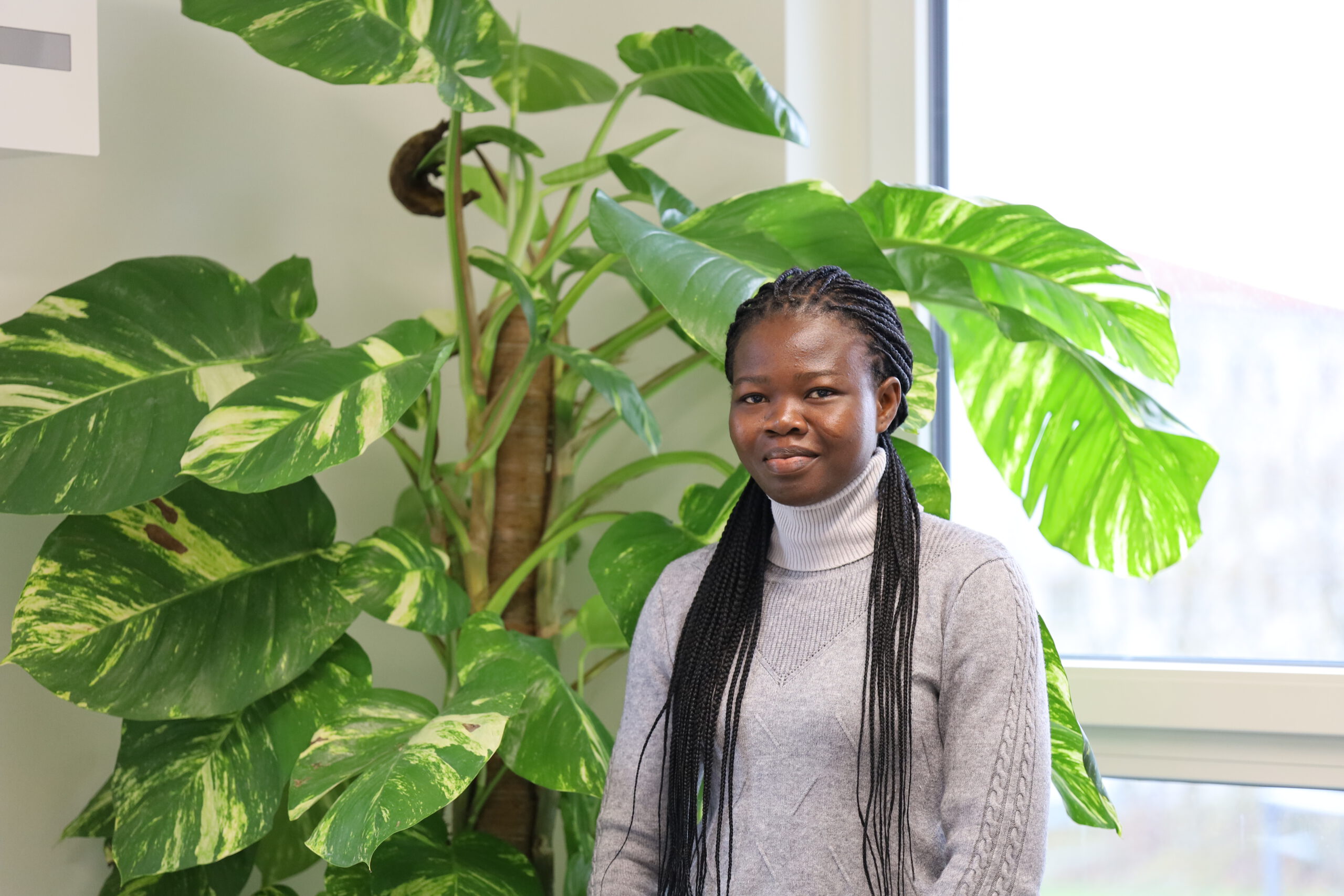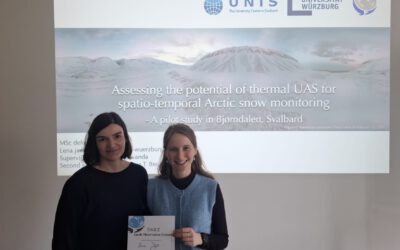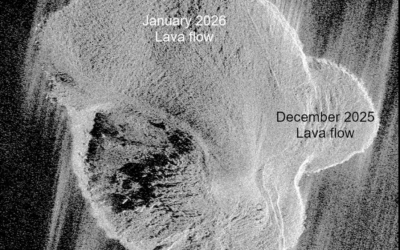Shortly before Christmas, our newest guest scientist Adjowa Yéwa TOSSOUKPE from Lomé (Togo) arrived in Würzburg. Adjowa will stay with us until the end of April 2024. Our colleague Michael Thiel is part of her supervisory team at the Federal University of Science and Technology Minna (FUT Minna), Nigeria.
Adjowa Yéwa TOSSOUKPE has a background in Plant Biodiversity and tropical ecosystems with interest in agrosystem restoration and natural resource management and preservation. She is currently undertaken a PhD in Climate Change and Human Habitat (WASCAL/CC-HH) at the FUT Minna, focusing on the assessment of the impact of Urban Sprawl on ecosystem services in the two metropolitan areas of Lomé (Togo) and Accra (Ghana). Urban expansion in these metropolitan areas is encroaching into peripheral areas. This encroachment leads to the loss of natural habitats and biodiversity and consequently the degradation and loss of ecosystem services that are essential to human well-being and to adapt to climate change. In order to integrate the preservation of ecosystem services into the explicit objectives of urban policies for sustainable urban development it is important to understand the dynamic of urban sprawl and its consequent impact on urban ecosystem services. She therefore first assesses comparatively the existing government environmental policies in the selected metropolitan areas. Then she assesses changes in land use and land cover as well as spatial and temporal changes in urban sprawl using GIS and Remote Sensing techniques. The land use and land cover maps generated are used as proxies to analyse the distribution and variation in the provision of ecosystem services. Interested in the level of correlation between urban sprawl and the provision of ecosystem services, she draws on the results on the spatial and temporal evolution of urban sprawl and variation in the provision of ecosystem services, using Ordinary Least Squares (OLS) regression and Weighted Geographical Regression (GWR) models.









